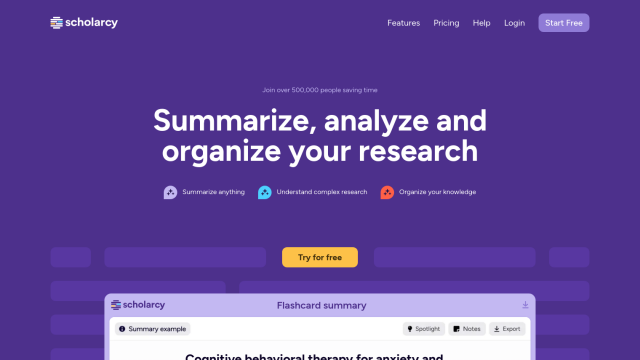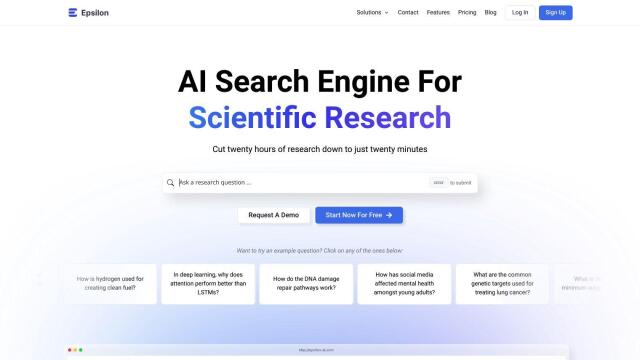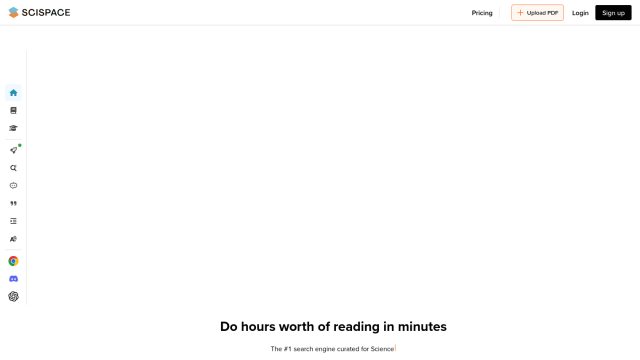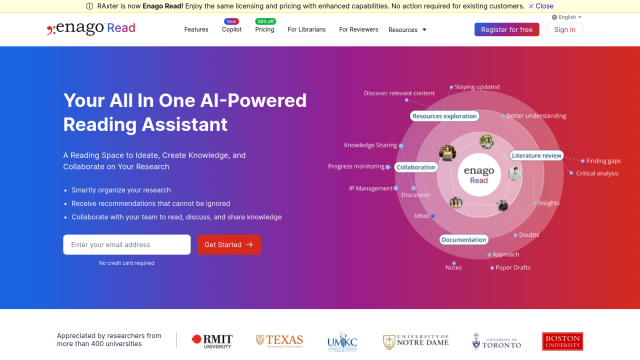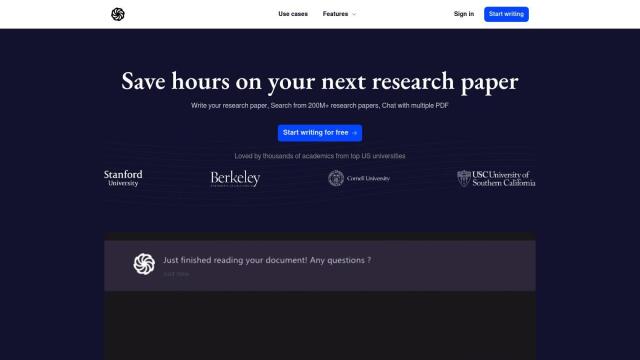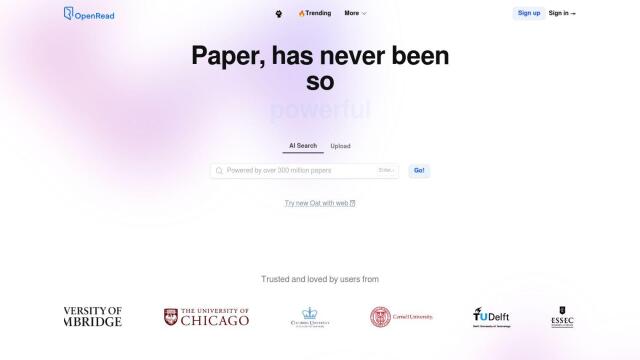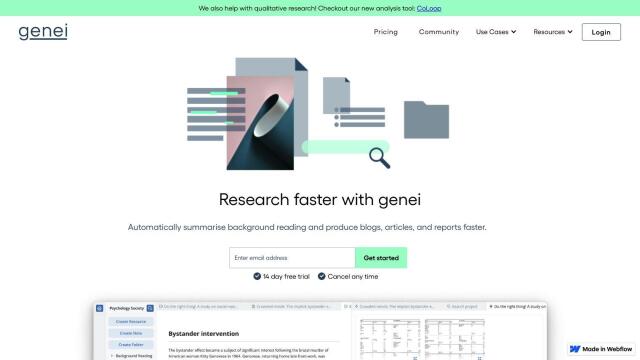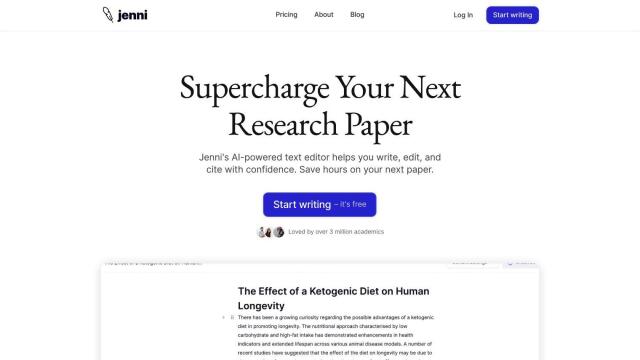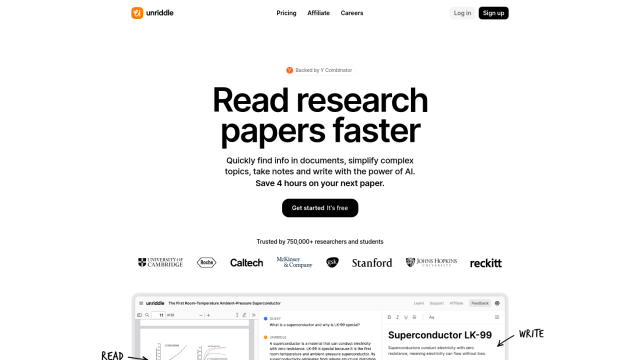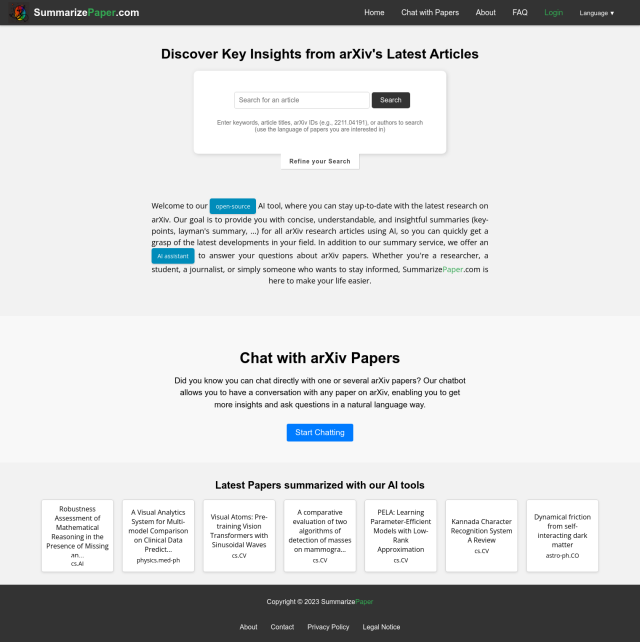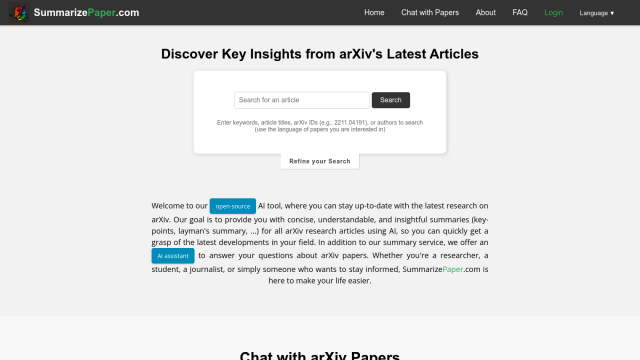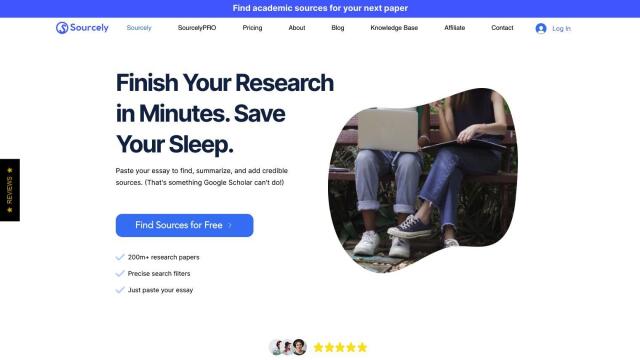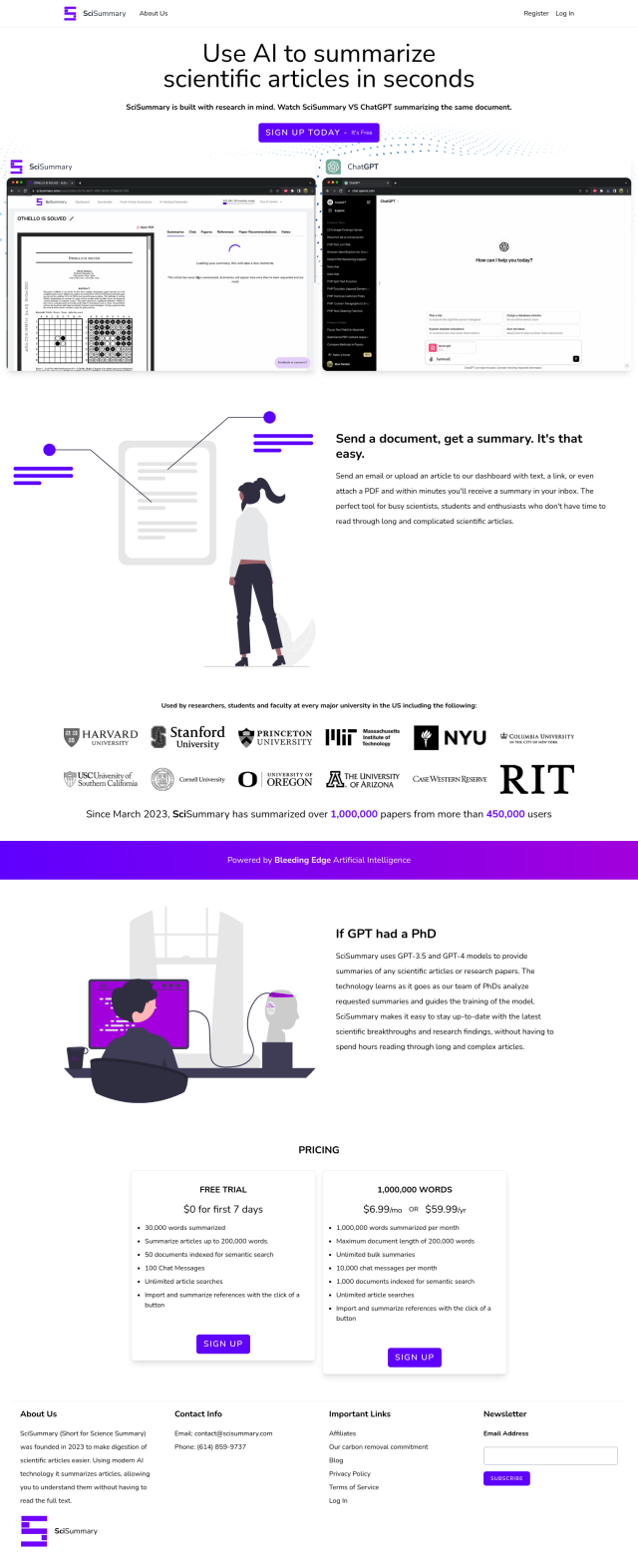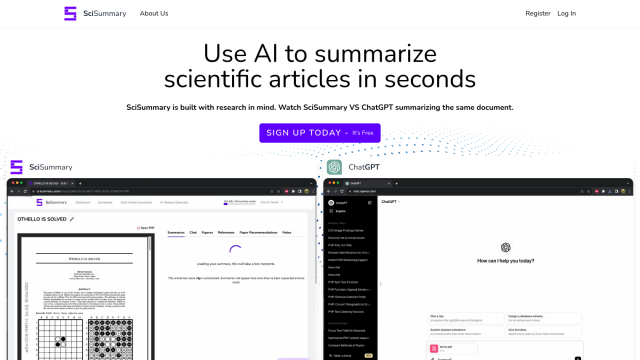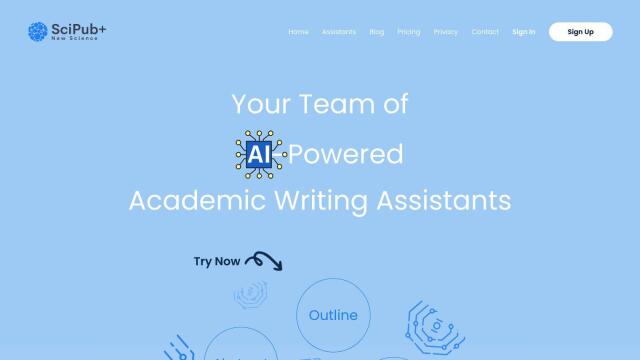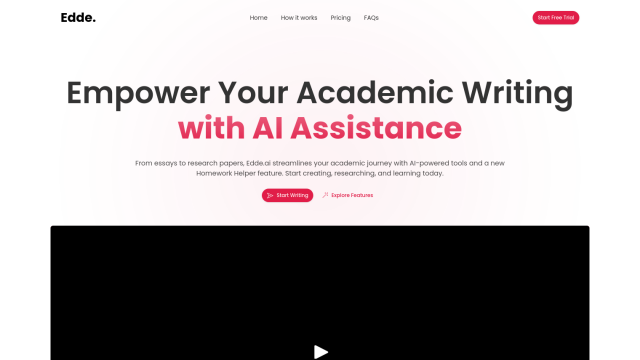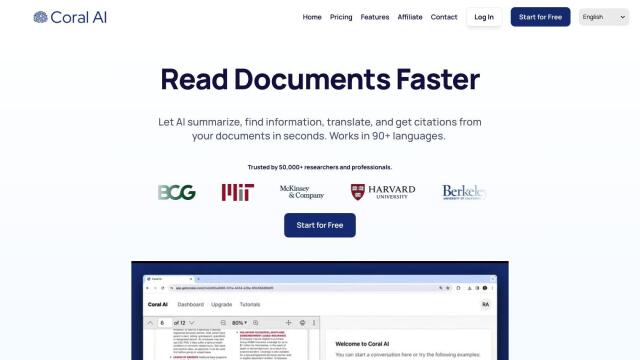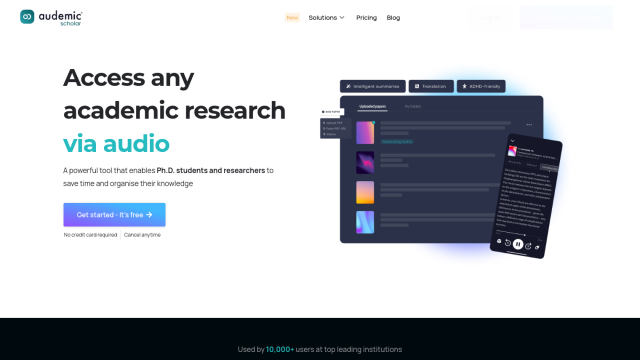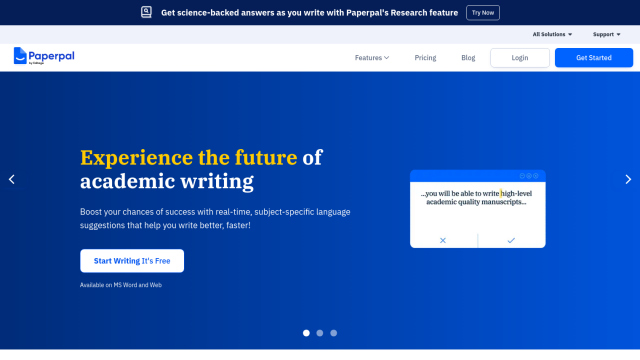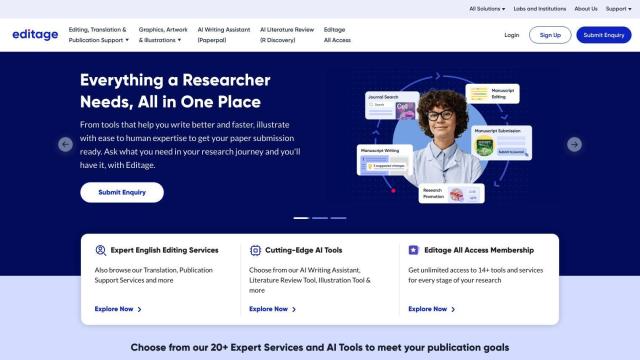Question: Is there an AI-powered service that can assist with literature reviews and facilitate discussion for researchers?
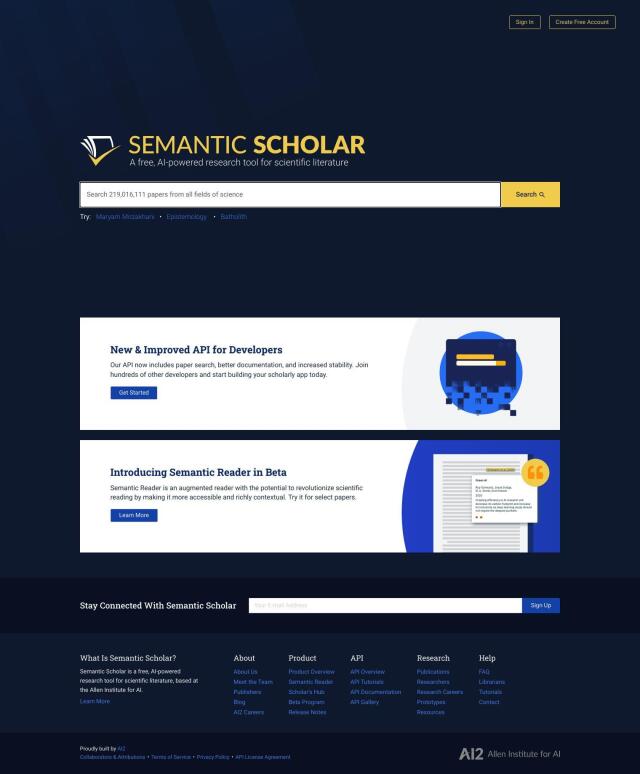
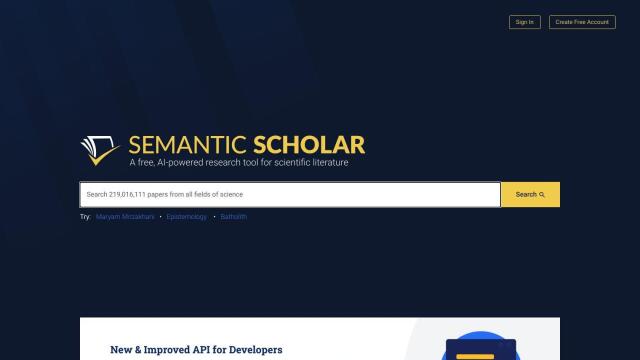
Semantic Scholar
For AI-powered services that can help with literature reviews and spark discussion among researchers, Semantic Scholar is a great option. The free service lets scholars search for and read relevant scientific papers in a vast corpus. It's got powerful filters for searching, short summaries (TLDRs), and tools to cite papers, take notes and create AI-powered feeds. The service also suggests papers based on your interests and can send automated email alerts when new citations arrive, so it's a good way to stay up to date on the latest research.


Elicit
Another option is Elicit, which lets you search, summarize and extract data from millions of research papers. Elicit is particularly useful for empirical subjects like biomedicine and machine learning, and it can automate systematic reviews, meta-analyses and keep you up to date on the latest research. You can even use it to have discussions with the content of papers, which makes it a useful assistant for literature reviews.

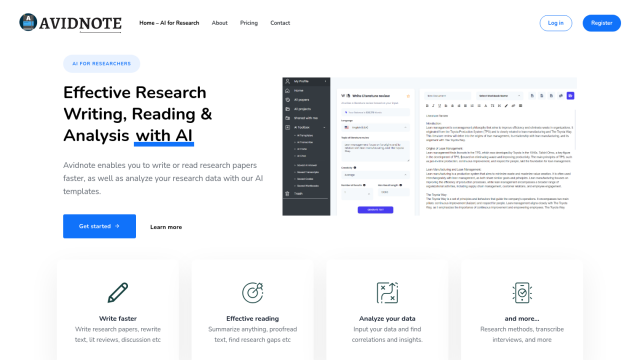
Avidnote
Avidnote is another option. The AI research tool can help you write research papers, generate literature reviews, summarize documents and spark discussion. It's got advanced AI templates for different research approaches and supports multiple languages. The tool also has data analysis tools to find correlations, and it can automatically transcribe interviews, too, so it's a good option for academic and professional research.

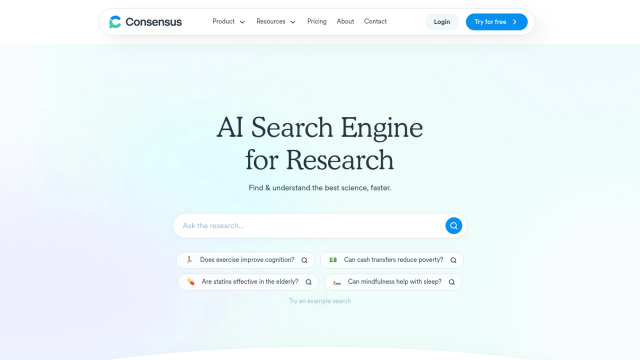
Consensus
Last, Consensus offers a broad search scope with AI insights powered by OpenAI and proprietary large language models. It's got features like Consensus Meter, Study Snapshots and Copilot designed to streamline literature reviews. With different pricing levels, Consensus is good for students, researchers and science organizations, too, and can help them quickly find and understand the most relevant research papers.

